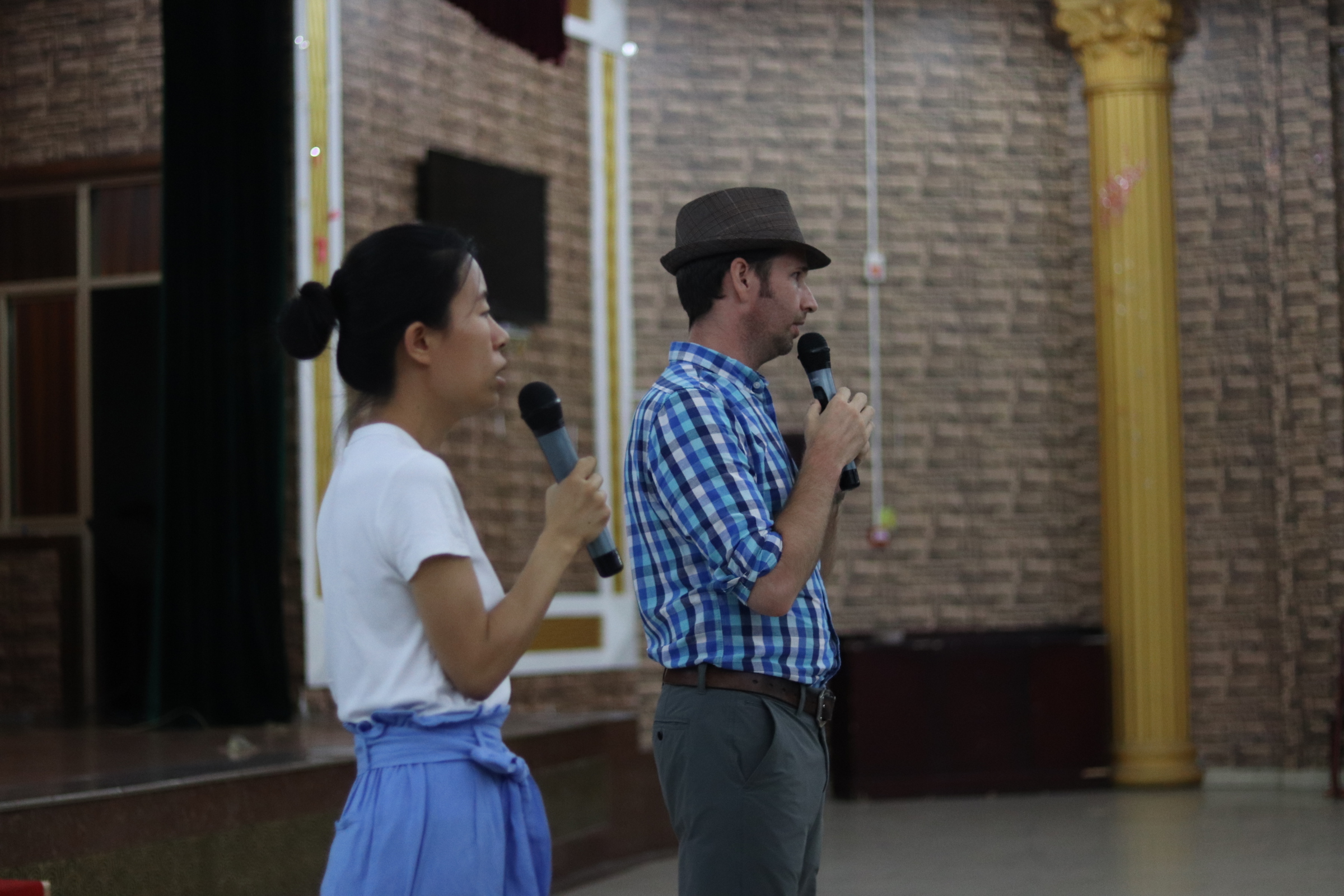While some Beijingers have furthered their language ability by enrolling in classes and some know only basic phrases to get by, many others are fluent in two or more languages and thrive in all it has to offer. Today Ruth is joining us to share about how working in translation is a challenging and rewarding career, and also a beautiful way to advance the Kingdom.
So Ruth can you tell us a bit about your career in translation? What kinds of translation work do you do?
I studied English for four years in college and I have been a translator for 9 years.
My work mostly involves literary translation of books from English to Chinese. I also work as an interpreter in my company’s training programs. I have been a volunteer translator at different ministry events, including the Global Leadership Summit (GLS), worship seminars and mission trips.
I worked on a youth curriculum translation project when I first became a translator. I had the privilege of working with great team members who not only have a passion for translation but also a vision to communicate the Good News to the next generation in their own language. It took us almost five years to complete this project and finally publish it as one of the first Sunday School materials for youth in China.
That must have been amazing being on the frontlines of that work! What are some other types of jobs in translation?
There’s written translation including technical, legal and literary translation; and oral translation including simultaneous (using headsets, many people listen to the translator translating while a person is speaking), consecutive (the translator translates after the speaker has said each short part of a speech) and whispering translation (similar to simultaneous interpreting, but instead of using a headset, the interpreter sits next to the person who needs interpreting and whispers the translation).
Quite a few options! What are the advantages of a job in translation? And what do you especially like?
A job in translation offers both the opportunity and the incentive to learn new things. More often than not, speakers at various seminars or events are the experts or leaders in their fields and their speeches are informative and inspiring. In the translating process, the translator become a learner and benefits from the speech, while at the same time working as a bridge between two different languages, helping people communicate and connect.
To translate well, a translator needs to stay up to date with the topic he or she is translating. This always motivates me to read broadly about the topic I’m translating and it’s always fun to discover new ideas in the process!
Cool! Can you also share about the disadvantages of translation?
Translating can make you feel lonely, especially for someone working freelance. It requires you to spend of lot of time working on your own, contemplating on the right words for translation. Self-discipline and time management can be challenging as there’s really not anyone holding you accountable in this area.
There are many foreigners living in Beijing who do not speak Chinese and they often attribute it to reasons such as they work in an English-speaking environment or everything in this city is available in English anyway. Do you think there are other reasons why people don’t learn Chinese? And how do you feel about foreigners not learning the local language?
I think learning a new language can be intimidating for a lot of people and it takes a lot of time and effort to practice, especially a language that’s very different from your mother tongue.
I think for cities like Beijing, there may not be much need to learn Chinese unless you want to reach out to locals who only speak Chinese.
Yes, well Beijing is quite the international city and it is growing quickly. How does the need for translation services change with this growth?
I think as the city becomes more international, there’s a growing need to communicate and cooperate with different countries which also creates a demand for translation. A lot of books and resources are still only available in English and there’s been an increasing need to translate these materials from English to Chinese.
A Chinese friend of mine once told me that a sermon in English will often sound gentler than one in Chinese. What differences have you noticed between church services in Chinese and English?
I think it really depends on the speaker and not the language being spoken. I do feel that the English church tend to put more emphasis on grace more than the Chinese church. Maybe that’s why it sounds gentler in English than Chinese.
What about when you read the Bible? Do you have a preference on what language you read in?
I read the Bible in both English and Chinese, I don’t really have a preference. I think different translations offers different perspectives on the same truth of Scripture, so I usually read the English and Chinese Bibles side by side.
That would be really cool to compare! Finally, how does having more than one language bless people?
Having more than one language gives you the opportunity both to reach out to and to learn from different language groups. Hosting language learning groups can also be a good ministry opportunity to reach out to languages students. It also gives you a glimpse of heaven when people of different languages will praise the one true God in unity.
Amen! Well Ruth, thank you so much for sharing with us today. I bet your insight has inspired a lot of readers!
Last week’s article: Ask a… Graduating Senior!
Did you know that the Middle Kingdom also has podcasts? To listen to conversations about Scripture and applying our faith, click here.
